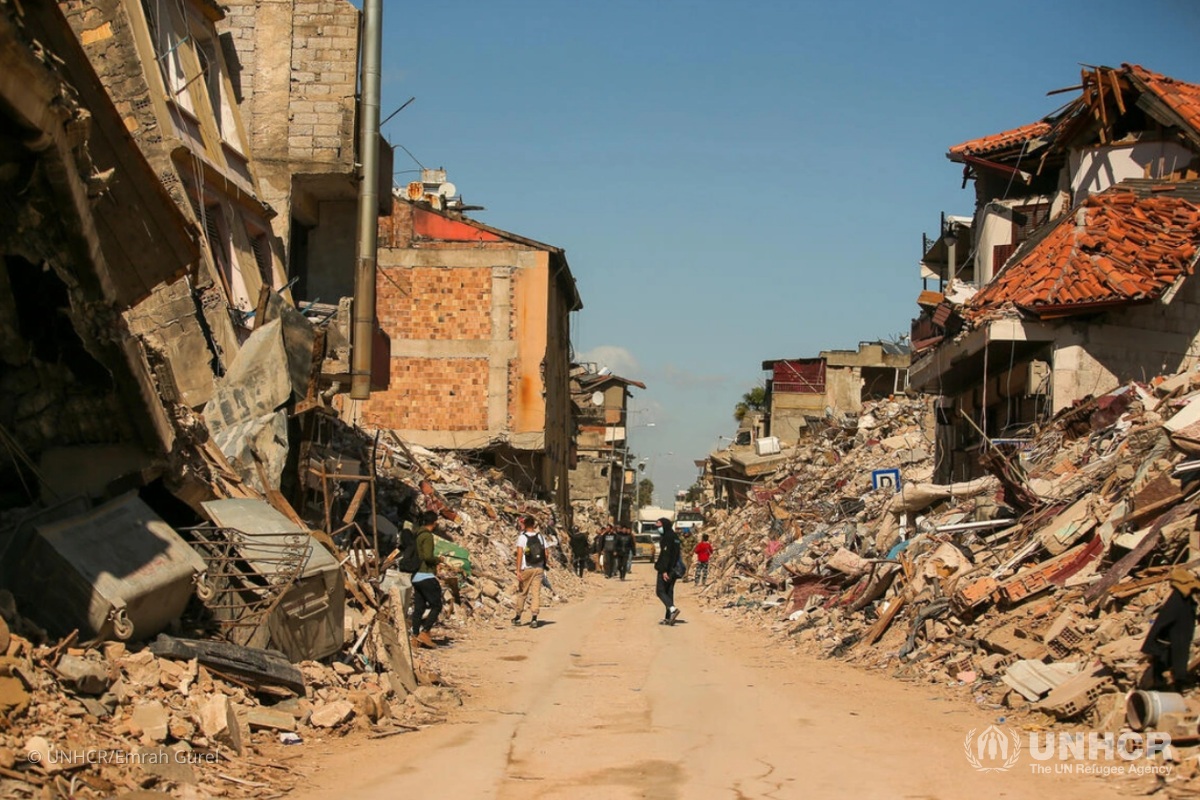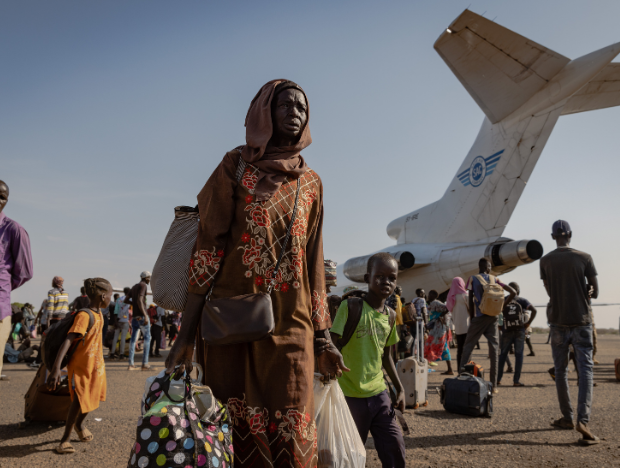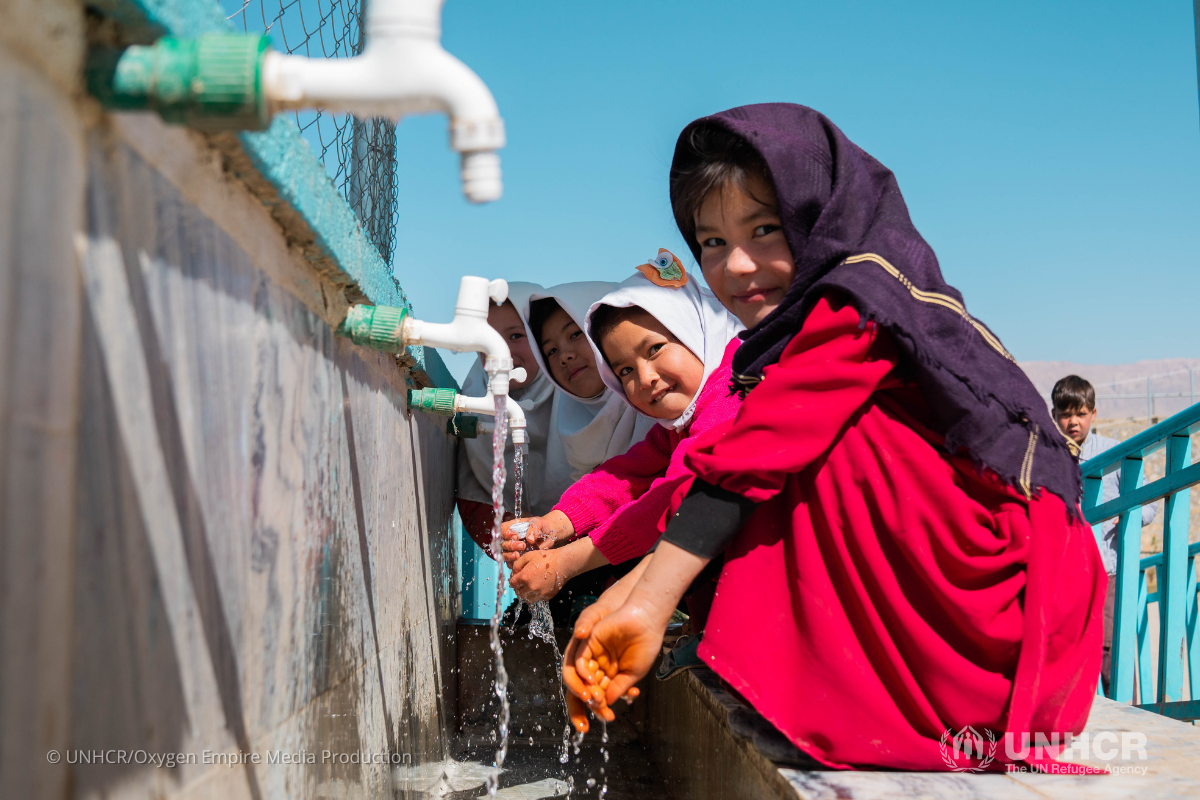
A year after the devastating earthquakes that struck Türkiye and Syria in February 2023, the plight of millions of displaced people and their hosts has deteriorated, UNHCR, the UN Refugee Agency, warned today.
Many have been thrust further into poverty and desperation since the quakes, with thousands still homeless and vulnerable. Türkiye is one of the world’s largest refugee-hosting countries, while Syria, where millions had been displaced by the 13-year crisis even before the earthquakes hit, is suffering severe economic turmoil.
In Syria, an estimated 90 percent of the population lives in poverty, 12.9 million are food insecure and 7.2 million are internally displaced. Having to contend with multi-faceted crises, 16.7 million people require assistance, up from 15.3 million last year. The earthquake impacted 8.8 million people across the country, uprooting tens of thousands – many of whom had already been displaced. In north-west Syria alone, more than 40,000 people remain displaced by the earthquake and are residing in 70 temporary reception centers.
Türkiye hosts 3.4 million refugees and the earthquake impacted a region that is home to some 1.75 million of them. Despite Türkiye’s impressive and inclusive humanitarian response, supported by NGOs, the UN and the international community, the impact of the earthquake is still felt by both refugees and their Turkish hosts.
Ninety percent of refugees in the country were already unable to cover basic needs prior to the earthquakes, with many reliant on informal employment, social assistance or loans. Now, in the aftermath, critical needs have intensified around housing, basic utilities, shelter, electricity, health care and telecommunications.
With less money and increasing needs, many refugees – Syrians and others – are resorting to survival strategies like cutting food spending and borrowing more, according to testimonies and a humanitarian assessment.
The catastrophe has also taken an excruciating toll on the mental and emotional well-being of a long-suffering population. Many have lost family members and friends; almost 60,000 deaths were reported in the two countries as a result of the earthquakes, with tens of thousands injured and entire neighborhoods reduced to rubble.
While UNHCR appreciates the timely and generous aid offered by donors, it appeals for continued support to ensure critical humanitarian needs can be met.
In Syria, UNHCR has been delivering protection assistance – including psychosocial support for more than 311,000 people affected by the earthquakes. It has also been providing shelter support, cash assistance and other aid to those affected. In 2023, UNHCR distributed relief items for more than 68,000 families across earthquake-affected areas in Syria. In government-controlled areas of Aleppo and Latakia, UNHCR and partners rehabilitated collective shelters, providing shelter to over 3,000 individuals. UNHCR provided cash assistance to people affected in Aleppo, Latakia, Hama, and Tartous Governorates, benefiting more than 16,000 families.
In Türkiye, in support of the State-led response, UNHCR has provided over 3 million relief items at the request of the Government, including tents, containers, hygiene kits, bedding and warm clothing for refugees and local residents in temporary accommodation centers. It also supported protection activities for more than 500,000 individuals – including legal counselling, identification and referral of people with specific needs, psychosocial support and cash assistance.
To facilitate better responsibility sharing with Türkiye, UNHCR is also calling for an expansion of resettlement opportunities for refugees, some of the most vulnerable of whom require longer-term solutions and a fresh start elsewhere.
Today, UNHCR also honors the memory, commitment and dedication of four colleagues as well as dozens of humanitarian workers who tragically lost their lives or remain unaccounted for because of the earthquakes in Türkiye and Syria.
Originally posted by UNHCR, the UN Refugee Agency.


